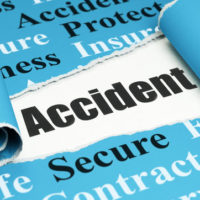Contributory Negligence in Maryland Premises Liability and Negligent Security Cases

Today’s blog entry will examine the role of contributory negligence in Maryland premises liability and negligent security cases. Before diving into the specifics of contributory negligence, however, it will be helpful to review some basics on premises liability and negligent security.
What is Premises Liability?
Premises liability governs the relationship between property owners and visitors. For most lawful visitors, an owner has a general duty of care to maintain their property in a safe condition. If there is a hazardous condition on the property, then the owner must take some kind of remedial action.
Once an owner learns of a hazardous condition on their property, then they must:
- Fix the hazardous condition;
- Address the hazardous condition with reasonable safety measures; or
- Warn visitors of the hazardous condition.
If the property owner fails to execute one of the actions above, then they may be liable for harm or injury resulting from the hazardous condition.
What is Negligent Security?
A subset of premises liability, negligent security addresses the liability of a store owner for injuries to customers. In many cases, the duties of a store owner under negligent security are the same duties as a property owner under premises liability.
But there is an aspect of negligent security that diverges from premises liability. In certain circumstances, a store owner can be held liable for the illegal, criminal activity of a third party. If the store owner could have anticipated or prevented the criminal conduct — then they may be liable for any resulting harm or injury.
How Does Contributory Negligence Relate to Premises Liability?
Both premises liability and negligent security are based on the legal concept of negligence. In order to recover compensation, the victim must show negligence on the part of the property or store owner.
That being said, there is an important limitation on negligence in Maryland law. The doctrine of contributory negligence prevents certain victims from recovering for their injuries. Specifically, if the victim contributed in any way to their injury, they cannot recover in court. This is a strict rule. Even if the victim was only one percent at fault — and the property owner or store owner was 99 percent at fault — contributory negligence bars recovery for harm or injury.
In most other U.S. states, there is a much less harsh standard for negligence. Referred to as comparative negligence, this doctrine compares the relative fault of the victim and the property or store owner. If the victim and the owner are both 50 percent at fault for the accident, then the victim can only recover half of the available damages. Whereas contributory negligence would bar the victim from recovering anything.
Do You Need Legal Help?
When dealing with premises liability, negligent security and other aspects of personal injury law, it can be incredibly beneficial to contact a knowledgeable personal injury attorney. The attorneys at Iamele & Iamele, LLP in Baltimore, Maryland, have many years of combined legal experience in personal injury law, including premises liability and negligent security. If you need legal help, contact us today for a free initial consultation.

